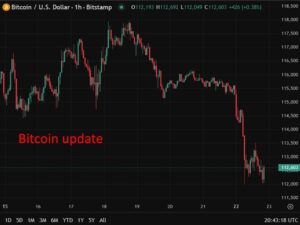In a week with no big data or central bank surprises, renewed fears of turmoil in the US banking sector on the back of the free fall of the New York Community Bancorp (NYCB) stock, drove longer dated yields lower as markets largely ignored hawkish Fed comments. With decent macro data and declining inflation as a solid backbone, equity markets did not suffer any big blows on the back of the NYCB situation.
January inflation data played well into the optimistic market perception that central banks will be able to cut rates aggressively this year. Euro area inflation declined slightly, and core price pressures remained modest for the sixth month in a row. Many annual price adjustments happen in January and thus the modest price increase removes some upside risk to the inflation outlook. With unemployment flat at a record-low 6.4% in December there are no signs of slowing wage pressures, though, and we continue to believe markets are too optimistic on the number of rate cuts this year.
The euro area barely avoided a technical recession with flat GDP growth in Q4 2023. The manufacturing recession is still weighing heavy on the German economy, which shrunk 0.3%, while Southern Europe and particularly Spain got a boost from a strong tourism sector.
Global manufacturing bellwethers like South Korean semiconductor exports and PMIs and Taiwan and ASEAN PMIs ticked in quite strong in January which indicate the worst of the global manufacturing recession is behind us. Elsewhere in Asia, Chinese PMIs indicate a continued muddling through scenario with the service sector importantly not falling out of the bed.
Fed remained on hold as widely expected, as Fed chair Powell signalled optimism on inflation but pushed back on a March rate cut. He said that data seen so far has been ‘good enough’ and that the Fed simply needs to see more similar evidence on disinflation to initiate the cutting cycle. Data were mixed with more job openings in December but higher initial jobless claims. For the third consecutive quarter, productivity growth was reported a lot higher than expected and even if such data is by definition uncertain, it does support cooling inflation.
Also the Bank of England kept (BoE) and the Riksbank kept policies unchanged at their respective policy meetings. The BoE removed its tightening bias but caused little market reaction. We expect both to cut rates for the first time in June.
Next week is thin on the data front. In the US, we will look out for ISM services. December PMIs indicate a rebound here after a relatively weak December. In China, we will likely see another deflation print. It is partly driven by food prices, though, and we still do not see broad-based declines in core prices.
Full report in PDF.









